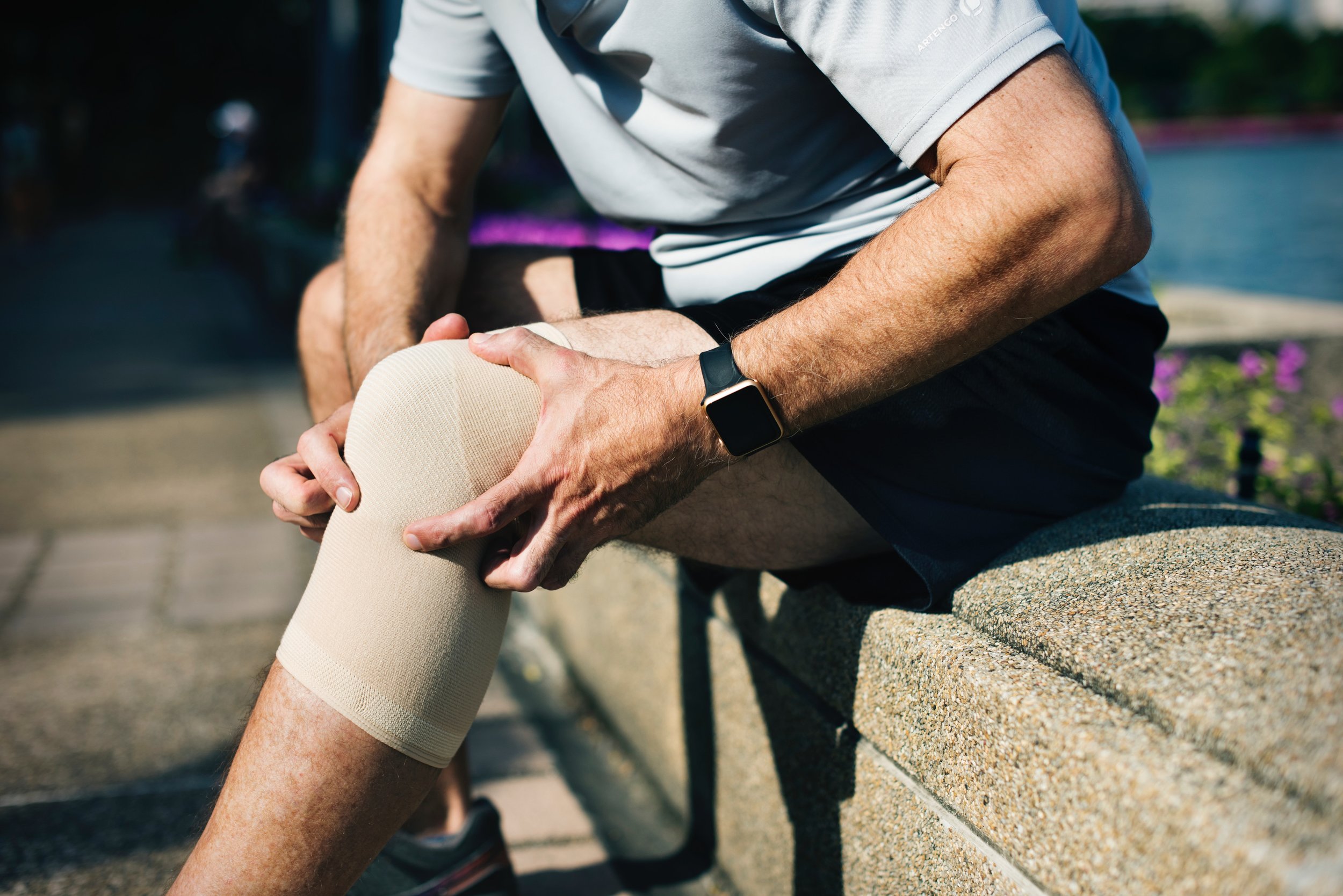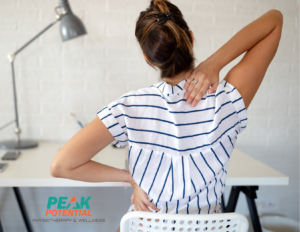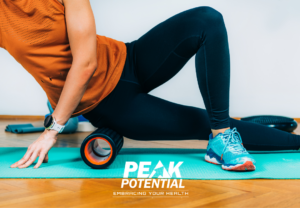
Based on the number of knee problems we saw in January, it seems like this is a tough time of year for the knee joint. The winter months usually result in worsening arthritis pain, stiffness from being more sedentary, and tightening muscles from the cold. A common concern we have gotten from people about their knees is swelling.
This is generally the series of questions:
-
Why are my knees swelling?
-
Should I be concerned?
-
What can I do about it?
So. let’s get those questions answered!
Why Are My Knees Swelling?
First of all, a swollen knee occurs when excess fluid accumulates in or around your knee joint. This may be the result of trauma, overuse injuries, or an underlying disease or condition. If a trauma is involved that will be pretty obvious, but more often than not there isn’t a single precipitating factor. This is when we need to consider your current activity level, changes you’ve made to your activity lately, whether it’s one or both knees involved, and other conditions you have that may be contributing.
Signs and symptoms that typically go along with these concerns include:
-
Swelling – The knee will be puffy and the skin around the joint will feel tight. Sometimes the swelling is mild and is only noticeable when you compare it to the other knee.
-
Stiffness – When the knee joint has extra fluid in it, you will have difficulty bending or straightening the knee completely.
-
Pain – Sometimes a swollen knee can be painful, depending on the cause. This could be a mild ache or severe pain making it difficulty to even put weight on that leg.
Should I Be Concerned?
Well, if the swelling is mild, you still have full range of motion and it is not uncomfortable there may be no reason to seek medical help. This is a time when you might just want to “wait it out” and see if it goes away with time. However, if swelling is pronounced, movement of the joint is limited, or pain is worsening – it is time to do something about it. Ignoring this type of problem is like to just get worse and not go away on it’s own.
Maybe you are somewhere in the middle – or have swelling that comes and goes – there are things you can do to prevent your knees from swelling and help get rid of the fluid more quickly.
What Can I Do About Swollen Knees?
-
Choose low impact exercise like cycling or swimming that don’t place continuous weight bearing stress on the knee joint.
-
Strengthen the surrounding muscles to ease pressure on the joint itself.
-
Maintain a healthy weight to avoid excess wear and tear damage that can lead to swollen knees.
-
Elevate the affected leg on pillows when you are sitting or lying down. Elevation helps the fluids drain away from the knee rather than accumulating there.
-
Eat more anti-inflammatory foods such as salmon, nuts and olive oil. Avoid highly processed, fried, and sugary foods that will increase inflammation in the joint.
-
Add cushioned insoles to your shoes to reduce stress on your knees. For more on how this can contribute to knee pain click HERE.
-
Massage at a very gentle rate may help increase blood flow to your knee and move the fluid up and out of your body. If anything hurts, refrain from massaging the painful area.
-
Don’t make the problem worse. If you spend a significant amount of time sitting on your knees, such as for landscaping or housework, wear cushioned knee pads.If possible, take “micro breaks” of 10-20 seconds frequently. During these breaks, stand up and stretch your legs. Allow your legs to return to their resting position.
Our final word of advise when dealing with knee pain and swelling is talk to an expert. As doctors of physical therapy, we look at knees many times in our day. I can almost guarantee we have seen someone with the same problems you have -probably this week – and can give you advise on the next best step to take in order to get over the problem faster.
You’re knees are pretty important to keeping you active and independent, so whether it is swelling, soreness, stiffness, or pain – don’t delay if you have a concern. For more ways to address your knee problem, Download our Free report
7 Simple Ways to Stop Chronic, Daily Annoying Knee Pain
Learn 7 different ways to stop annoying knee pain… without Injections, Painkillers, or Surgery. . . even if your doctor told you nothing could be done to help!



